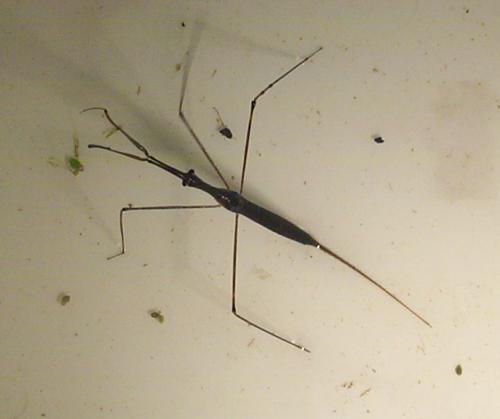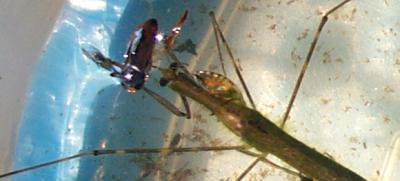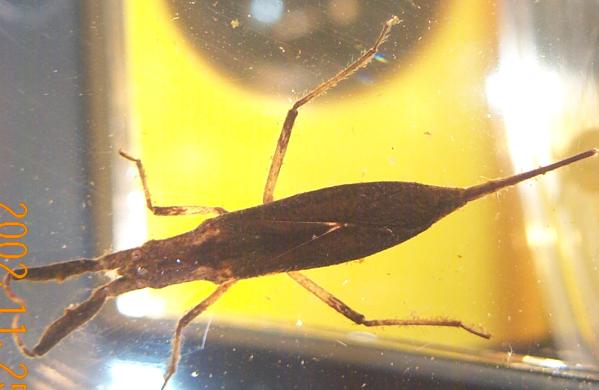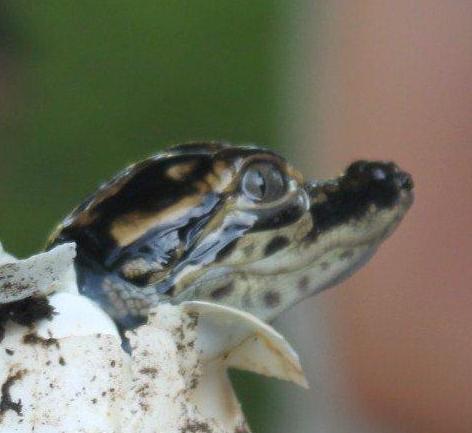|
Pond Life of Brazos Bend State Park
Water Scorpions: family Nepidae
Water scorpions are long slender insects that only superficially resemble
scorpions. They are often confused with walking sticks. Walking
sticks, however are terrestrial insects and belong to a completely
different order.
|
Water scorpions have a long twig-like body and long spindly legs. At the
end of the abdomen are two long tubes which it uses as snorkles
for breathing. The forelegs have raptorial claws and can be used
for seizing prey. These forelegs are often held thrust forward and
closely together so that they look like an elongated snout. The
head is small, with bulging eyes, and a short downward curving
beak. They are usually colored dark brown. They can get up to 4
inches long.
|
|

Water scorpion (Renatra)
|
Water scorpions frequently rest head down, with the ends of the tubes just
out of the water, and the forelegs extended, waiting for prey. When
an animal that is small enough to eat gets within reach of the
forelegs, it is siezed and brought to the beak. The water scorpion
pierces it with its beak and sucks out its disolved insides.
Water
scorpions may wait motionless for hours while hunting. They resemble
twigs so well that other insects frequently do not notice them.
Sometimes insects perch on them, apparently not aware of the danger
they are in. Some insects even lay eggs on them.
|

Water scorpion head and beak
|
|
The picture to the left shows the water scorpion's beak.
Compared to other members of Hempitera, the head and beak are
small in proportion to the insect's body.
In the picture below, a water scorpion has captured a water
boatman and is trying to find a chink in its exoskeleton to pierce
with its beak. Even when subduing prey, water scorpions move very
slowly. A creeping water bug resting on the water scorpion's
thorax is not disturbed by the struggle.
|
|
Two types of water scorpions are present at Brazos Bend State Park.
The most common is the genus Ranatra which tend to be long
and slender, almost like a thin stick. The other genus, Nepa
is broader and shorter. Nepa are sometimes confused with
giant water bugs. However the legs of water scorpions are never
modified into paddles like those of a giant water bug.
|
|

|
|

Wide-bodied (Nepa) Water scorpion
|
|
The picture at the left shows a wide-bodied water scorpion.
These are seen much less often in Brazos Bend State Park than the
long slender type. They are usually not as long. The specimen
pictured was very small, only about 1 inch long, not counting the
breathing tubes and raptorial forelegs.
|
|
Next
|
Water Boatman
|
Creeping Water Bug
|
Prev
|
Updated: Aug 12, 2011
|


